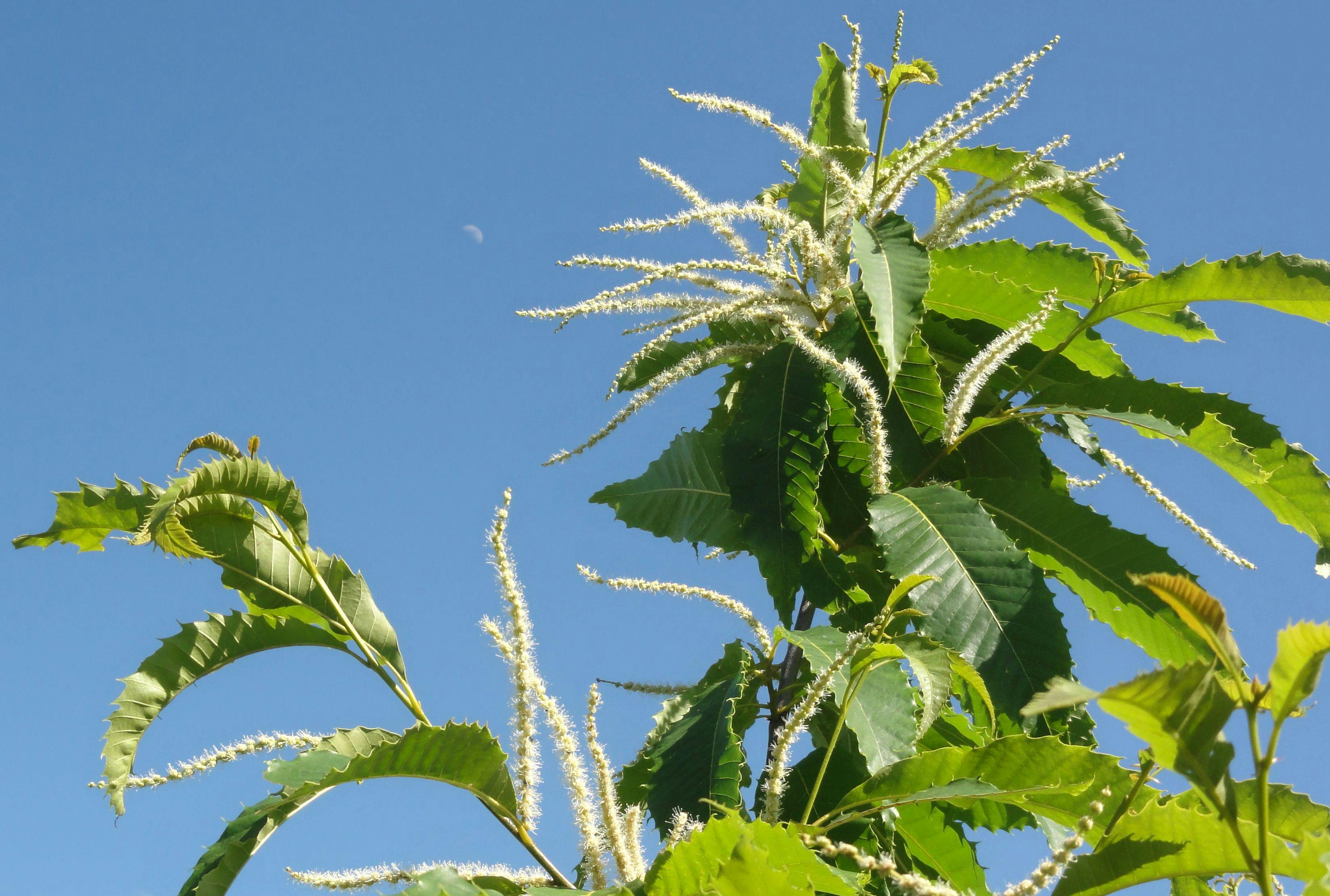Sermon on Raising the Dead
The slanted church down this unnamed forest road
stands today with brittle spirit: wormy timber,
cinder blocks, warped and tilted pine beams lacking
any chiseled strength. The stones in its burying ground
nod wiry and wind-bent. Some have been fractured by ice,
others are sanded smooth from years of downvalley air.
Names lying there plunge slowly into granite
anonymity, open box chasms bury
history further year after year. Three miles north,
our data sheets are filled with the names of our own
sick and dying. Once-giant chestnuts litter the slopes,
their supple sprouts pushing out, flexing, flexing.
Not one individual will likely reach
maturity: victims of blight rebuilding muscle
each cycle only to tremble under the soggy
weight of summer leaves. The last of their titan stumps
jut from the soil, aching boles grow sick and become
chained within the tombs of textbooks. Today, the largest
specimens recorded in these hills tower meekly
at twelve feet. The sacred march of time will mulch them down,
and they will wake to violent light and mulch down again.
Remember it is a privilege to attend
the death of things, and a greater privilege to attend
death so powerful the ground can hardly give
even remnants in return. Here lies silent space
gaping in a comet’s wake, the ambient
ring of once-bowed strings. Let us refuse to divine
reanimation, to dig for the bodies of lives
long-finished. May we grasp those frail hands, gather
around the bedside, and properly lower
loved things into the ground, sending their names
into the wind. May we scatter dirt, make ultimate
peace, and be done with it. For once, allow the dead
to haunt each cursèd hill: every sprout a phantasm,
every toothy leaf their blinding wails. And if they come
back, let them come. Should they unveil an antidote
sequestered in the tablature of nucleotides,
they will surge through thicket beyond thicket of laurel
as we guide them back, hoping toward heartwood.
Still, boats will continue to churn toward us, hauling
desired novelties we will regret. Do not forget
we wanted more, more, and shipped the blight: that plague,
biological insurrectionist: ourselves, we
who turn up sodden earth in attempts at foregoing
responsibility for our massacres,
investing at all costs to resurrect what we killed.
We attempt to re-invite those fallen species
to this living world, weaving genetic code,
raising rotten stitched-up futures. In some abandoned
hereafter we might have a need for such novelty:
the planet a belovèd garden, a refuge
for those who make it. Until then, each sprout will roll
its impossible boulder and tumble back down
into soil. We will leave these hills for home, put away
our papers, lock the truck door, and say a brief prayer
for those who are dead of our ignorant prowess.
Those sentinels will stand tall as they can from their
lonely vantages, pushing frail flowers into
aborted fruit and perishing. They will be reborn,
be reborn, and they will watch silently as we
mutate deeper into the world we’ve made for ourselves.
Rabun County, Georgia

Uses of Yarrow
Called soldier’s woundwort for its use plugging bodies.
Held twice its weight in fluid, the leaves cauline,
gauzy, lying neat below clusters of white blooms
the size of mole eyes. Once spattered in Union blood,
dripping in Confederate flesh: yarrow to stop
hemorrhaging, gather the fruit of battle,
sop up the tattered lesions of soldiers, brothers.
Steeped a fine tea to clear headaches or deepen sleep
in the harrowing pits and ochre-wall trenches,
treated the chasms of the powder-burnt fields,
hard-shelled clay, earthworks ringing out the heartbeat
thumps of terrible drums. Still, a crude projectile’s force
was enough to peel through every feeble matrix
made of dainty cells, gaping tissues, frail organs:
that same fate of rail-splitters, kings, and Achilles, who,
shot in the heel and bleeding out, reached for yarrow,
thousand seal, sanguinary, downy and drenched, to ease
the pain, his newly mortal torment, and pass easy.
Sumter National Forest, South Carolina

